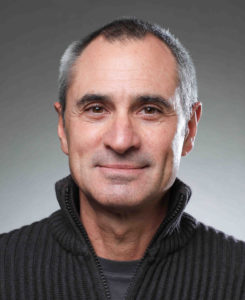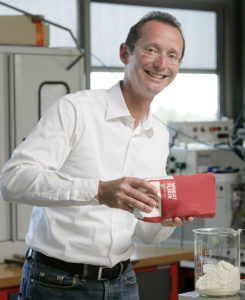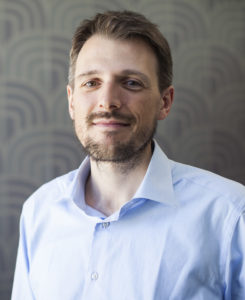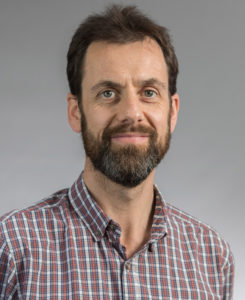Laboratory of Intelligent Systems
Dario Floreano
Prof. Dario Floreano is director of the Laboratory of Intelligent Systems at the Swiss Federal Institute of Technology Lausanne (EPFL). Since 2010, he is the founding director of the Swiss National Center of Competence in Robotics, a research program that brings together more than 20 labs across Switzerland.
Prof. Floreano holds an M.A. in Vision, an M.S. in Neural Computation, and a PhD in Robotics. He has held research positions at Sony Computer Science Laboratory, at Caltech/JPL, and at Harvard University. His research interests are Robotics and A.I. at the convergence of biology and engineering. Prof. Floreano made pioneering contributions to the fields of evolutionary robotics, aerial robotics, and soft robotics. He served in numerous advisory boards and committees, including the Future and Emerging Technologies division of the European Commission, the World Economic Forum Agenda Council, the International Society of Artificial Life, the International Neural Network Society, and in the editorial committee of several scientific journals. In addition, he helped spinning off two drone companies (senseFly.com and Flyability.com) and a non-for-profit portal on robotics and A.I. (RoboHub.org).
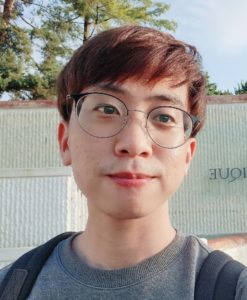
Bokeon Kwak
Dr. Bokeon Kwak is a postdoctoral researcher at the Laboratory of Intelligent Systems (LIS) at EPFL, and is currently working on the development of an edible drone and edible actuator. He completed both his bachelor and doctoral degrees in mechanical engineering at Ulsan National Institute of Science and Technology (UNIST) in 2015 and 2021, respectively. During his PhD studies, he developed various bioinspired robots to study their locomotion, such as multimodal walking, underactuated rowing and Marangoni propulsion. Bokeon also worked on the development of multiple mesoscale smart structures integrated with soft sensors and actuators towards improved intelligence of small-scale robots. His research interests include bioinspired robotics, soft robotics, and edible robotics.
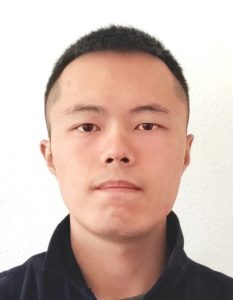
Shuhang Zhang
Shuhang Zhang is a PhD student at the Laboratory of Intelligent Systems (LIS) at EPFL and is currently working on the RoboFood project. He completed his Bachelor’s degree at Harbin Institute of Technology in 2019 and his Master’s degree at the University of California, San Diego in 2021. He has a background in mechanical and electrical engineering. During his Master’s studies, he proposed a rapid manufacturing method for low-profile pneumatic soft robots. His research interests include design, control, and fabrication of soft/bio-relevant actuators.
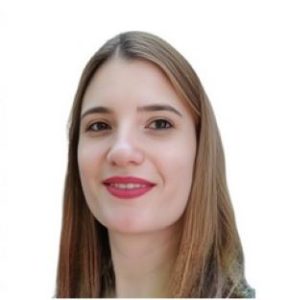
Antonia Georgopoulou
Dr. Antonia Georgopoulou is a postdoctoral researcher at the Laboratory of Intelligent Systems (LIS) at EPFL, and is currently working on the development of edible thermoelectric devices. She received her degree (M.Eng.) in Chemical Engineering with distinction from the University of Patras in 2017. She received her degree (M.S.) in Biomedical Engineering from ETH Zürich in 2019. In 2022, she received her Ph.D. in Engineering Science at Vrije Universiteit Brussel with highest distinction. She first studied tissue engineering and biofabrication before joining Empa, The Swiss Institute for Materials Science and Technology in the department of Advanced Materials and Surfaces working on the topic of sensor development for soft robotics. In 2023, she was awarded the prestigious fellowship Women in Science (WINS) and joined the soft materials laboratory at EPFL and the NCCR bioinspired materials to develop electronic skin with selective multi-sensing capabilities inspired by natural sensory neuro-receptors. Her research focuses on bioinspired and biohybrid materials and structures, additive manufacturing and functional materials for soft robotic applications.

Amaya Viret
Amaya is the project manager of the RoboFood project, based at the Laboratory of Intelligent Systems (LIS) at EPFL. She has gained extensive experience in managing large-scale EU-funded projects while working at the at the Project Coordination Office of the Human Brain Project. She also worked with early-stage startup development in the field of life sciences while working at the Fondation Genevoise pour l’Innovation Technologique. Amaya holds a Master’s degree in Medical Biology with a specialization in Neuroscience from the University of Lausanne.
Laboratory of Food Process Engineering
Remko Boom
Prof. Dr. ir. Remko Boom was born in Utrecht, The Netherlands. He received his MSc degree (highest honours) from the University of Twente, in 1988. In 1992 he obtained his PhD degree (highest honours) at the same institute. In 1993 he received the Royal Dutch Shell Study Tour Award for his PhD work. From 1992 to 1998 he worked for Unilever Research. In 1998, he was appointed as Full Professor of Food Process Engineering at Wageningen University. In 2011 he was appointed as scientific director of the Graduate School / Programme VLAG (food technology, nutrition, molecular sciences and agro-biotechnology). His research interests concentrate around the dynamics of dispersed systems: micro- and nano-engineering in food production, emulsification in complex systems, product structuring, fractionation and separation processes, and enzymatic conversions. His research group includes two other full professors, 3 assistant / associate professors, 4 technicians, and currently around 30 PhD students and postdocs (excluding BSc and MSc students).
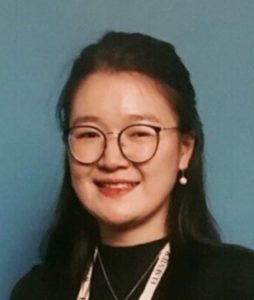
Lu Zhang
Dr. Lu Zhang is Assistant Professor in additive food assembly at the Laboratory of Food Process Engineering. Her research interests include complex food systems, 3D food printing and material science. She and her team conduct research to advance the food printing technology for the personalization of healthy and tasty foods, by developing machine-learning predictive models to describe behaviours of complex food systems during printing and designing control strategies to adapt the printer to changes in food material properties. Lu received her PhD degree from Wageningen University in 2018. She invesigated bioactive ingredients during mini-bread baking. She studied chemical engineering for her BSc and MSc degrees at Xiamen University in China.
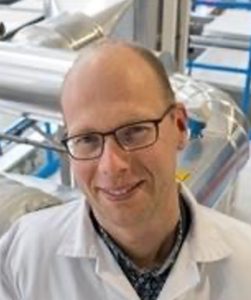
Maarten Schutyser
Dr. ir. M.A.I. Schutyser is Associate Professor (UHD) at the Laboratory of Food Process Engineering. His research focuses on understanding behavior of concentrated and dry materials during (spray) drying, dry fractionation and 3D food printing. This helps to explore new operating windows for existing dry food processes and develop radical new dry processing routes. The aim is to deliver better quality & healthier foods with more environmentally friendly processes compared to traditional processing.
Maarten Schutyser (co-)authored over 100 scientific peer-reviewed papers. He obtained his MSc and PhD degrees, respectively in 1999 and 2003 (both cum laude) from Wageningen University & Research. After his PhD, he was employed by Akzo Nobel Chemicals and NIZO food research, respectively as a research technologist and group leader predictive modelling of foods. Since 2008, he is leading the Dry Food Processing group at the Laboratory of Food Process Engineering. He is also chairman of the Netherlands Working Party on Drying, an independent society that connects drying experts via networking events.

Ruud van der Sman
Prof. dr. ir. R.G.M. van der Sman is a Professor at the Laboratory of Food Process Engineering and a Senior Researcher in Food Physics at Wageningen Food & Biobased Research. Ruud’s expertise lies in thermodynamics for food structuring, mesoscale and multiscale simulations, as well as food reformulation. Ruud’s expertise, particularly relevant to the RoboFood project, involves studying the interaction between Large Deformation Mechanics and Water in Food Gels / Meat (Sman, Soft Matter, 2015), Rheology of extruded food materials for 3D printing / meat analogs (Sman, et al. Food Hydrocoll. 2021, in press), and thermodynamics of state/phase transitions in biopolymers.
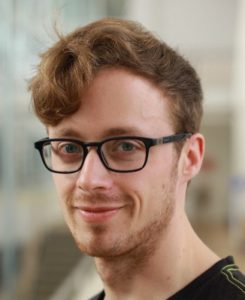
Quinten Steffens
Quinten Steffens obtained his bachelor’s degree in food science with the designation ‘cum laude’ from Wageningen University. As part of his bachelor programme, Quinten completed a minor in Nutritional Sciences in France. His thesis work focused on the effect of glycated whey proteins on the melting behaviour of chocolate. During his master’s studies at Wageningen, he focused on product design, consumer perception and food ingredient functionality. For his master thesis project, Quinten studied the rheological and tribological behaviour of fat-reduced chocolates. He concluded his master’s programme with an internship at Barry Callebaut, where he worked on the development of a sugar-reduced chocolate. After graduation, Quinten worked in the food industry for a year before returning to the academic world for his PhD at the Laboratory of Food Process Engineering. Additionally, Quinten spent 3 years in contract-research organisation Wageningen Food & Biobased Research, where he worked on a project related to the protein transition and 3D food printing. As someone who has always been fascinated by food technology and robotics, joining the RoboFood project as a PhD candidate seemed like the perfect opportunity for Quinten.
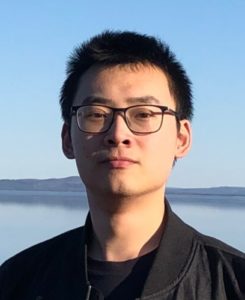
Ruihao Zhu
Ruihao Zhu obtained his BSc in Mechatronics from Zhejiang University in China, followed by an MSc in Mechatronics from KTH Royal Institute of Technology in Sweden. Ruihao’s research focussed on the field of mechatronics, especially on the structural design and automation control of soft robots and 3D/4D printing processes. He will now combine this field with food science to play a role in the design and assembly of food materials into functional parts of robotic food and edible robots as the core topic of his PhD at the Laboratory of Food Process Engineering.

Lyneth Duipmans
Lyneth Duipmans is a Research Technician at Wageningen University & Research, working in the Laboratory of Food Process Engineering, where she assists PhD students in their practical work. Lyneth focusses mostly on the 3D food printing and milling systems, with the aim of exploring new principles for the production of foods. She obtained her Bachelor’s degree of applied science study in Food Technology from Van Hall Larenstein in The Netherlands. Lyneth has gained a significant amount of practical experience working in different food companies and innovation centres, which developed her interest in food process engineering.
Printed and Molecular Electronics (PME) group
Mario Caironi
Dr. Mario Caironi was born in Bergamo (Italy). He studied at “Politecnico di Milano” (Milan, Italy), where he obtained his Laurea degree in Electrical Engineering in 2003 and a Ph.D. in Information Technology with honours in 2007, with a thesis on organic photodetectors and memory devices. In March 2007, he joined the group of Prof. Henning Sirringhaus at the Cavendish Laboratory (Cambridge, UK) as a post-doctoral research associate. He worked in Cambridge for 3 years on high resolution inkjet printing of downscaled organic transistors and logic gates, and on charge injection and transport in high mobility polymers. In April 2010, he was appointed as a Team Leader at the Center for Nano Science and Technology@PoliMi of the Istituto Italiano di Tecnologia (Milan, Italy). In 2014, Mario entered the tenure track at the same institution and obtained a tenured researcher position in 2019. He is author and co-author of more than 130 scientific papers in international journals and books. He is currently interested in solution-based high resolution printing techniques for micro-electronic, opto-electronic and thermoelectric device fabrication, in the device physics of organic semiconductors based field-effect transistors and their integration in high-frequency printed circuits, and in biomedical and/or implantable sensors and electronics for healthcare. Mario is a 2014 starting ERC grantee and a 2019 consolidator grantee.
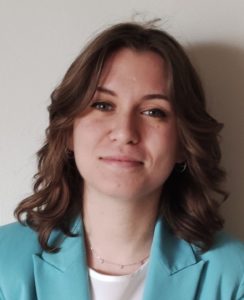
Giulia Coco
Giulia Coco, from Foggia (Italy), received her M.Sc. degree in Engineering Physics in April 2021 from the Politecnico di Milano, with a thesis on organic thermoelectrics, carried out at the Center for Nano Science and Technology – CNST, Istituto Italiano di Tecnologia, Milan. During her Master’s degree studies, she joined the Erasmus+ Programme, spending one semester at Lunds Tekniska Högskola – LTH, Lund (Sweden). Giulia started a PhD in Physics in November 2021 at the Politecnico di Milano, in collaboration with the CNST. Her research is focused on edible electronics as a part of the RoboFood project.
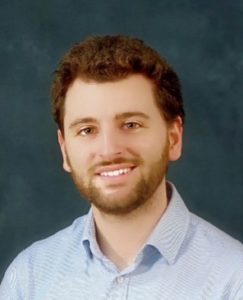
Valerio Francesco Annese
Dr. Valerio Francesco Annese received his B.Eng. in electronic and telecommunication engineering and his M.Eng. (magna cum laude) in electronics engineering from Politecnico di Bari – Italy – in 2014 and 2016, respectively. From 2014 to 2016 he was a research assistant at the Design of Electronic Integrated Systems Laboratory (DEISLab) at Politecnico di Bari, working on cyber-physical systems and brain-machine interfaces. In 2016, he joined the Microsystem Technology (MST) group at the University of Glasgow – United Kingdom – as a PhD Researcher, where he received his PhD in Electronic Engineering in 2020. After his PhD, Valerio was appointed as a Postdoctoral Research Associate at the University of Glasgow until 2021. His research at the University of Glasgow focused on biosensors, point-of-care technology, and ingestible electronics. In 2022, Valerio joined the Center for Nano Science and Technology (CNST), Istituto Italiano di Tecnologia, Milan – Italy – as a Postdoctoral Research Associate. His research interests within the RoboFood project include edible sensors and edible electronics.
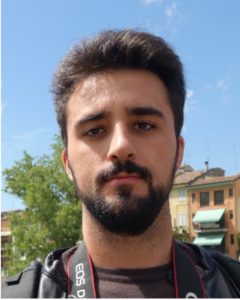
Valerio Galli
Soft Robotics Group
Jonathan Rossiter
Prof. Jonathan Rossiter is a Professor of Robotics and head of the Soft Robotics group at Bristol Robotics Laboratory. In his robotic actuator and artificial muscle research Jonathan has been developing new polymer-composite actuators involving principles of buckling and bi-stability and robots which are inspired by bio-mimetic study of swimming organisms, including bacteria and fish. Jonathan’s research also includes bio-mimetics, artificial intelligence, composites, sensors and the wider robotics field. His research on sensing extends from tactile sensing techniques to human-like visual sensing and perception and human assist paradigms, including the projection of one sense (such as vision or balance) to another sense (such as touch). In the field of artificial intelligence Jonathan focuses on high-level intelligence and especially human-like reasoning with uncertainty.
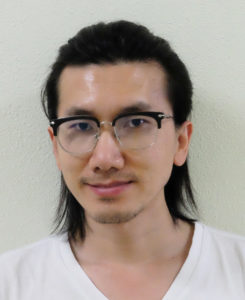
Qiukai Qi
Dr. Qiukai Qi is a Research Associate based in the Soft Robotics group at Bristol Robotics Laboratory. Prior to this position, he was a JSPS postdoctoral researcher at the Suzumori Laboratory at Tokyo Tech. Often inspired by biology, Qiukai aims to develop intelligent, autonomous, and adaptive soft robots that are safer to interact with or to function within humans, and are “green” to environment. He is particularly interested in making smart transducers using soft materials and structures, adaptive morphology, and artificial intelligence. Qiukai has a background in Mechanical Engineering (BEng), Robotics (MSc), and Information Science (PhD).

Alexander Keller
Dr. Alexander Keller received his BSc in Nanotechnology from the University of Wollongong, Australia. This was followed by a PhD in Chemistry at the University of Wollongong, Australia with his thesis titled Smart Materials for Edible Devices. The focus of his PhD was on the modification of biocompatible, biodegradable and edible polymer composites for the development of smart materials and devices with advanced functionalities for biomedical applications. He is currently a postdoctoral research associate within the Soft Robotics Laboratory at the University of Bristol, UK. He aims to use his knowledge of smart materials and food chemistry to develop edible electroactive actuators.
Past Team Members
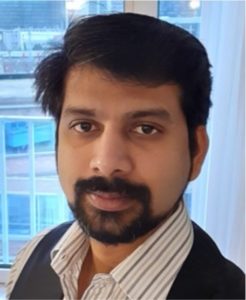
Yogeenth Kumaresan
Dr. Yogeenth Kumaresan received his B.Eng in Electronic and Communication Engineering from Anna University, India, his Master’s degree in Nanotechnology from Amity University, India, and his PhD degree in flexible and stretchable electronic devices from Gwangju Institute of Science and Technology, South Korea, in 2019. Yogeenth previously worked as postdoctoral researcher at the Bendable Electronics and Sensing Technologies (BEST) group at the University of Glasgow, UK. Within the RoboFood project, Yogeenth worked as postdoctoral research associate at the Soft Robotics Laboratory at the University of Bristol, UK. His research interests included physical sensors for soft robotics, edible and bio-degradable materials, soft edible actuators, MOSFETs, ultra-thin chips and flexible/stretchable electronics.
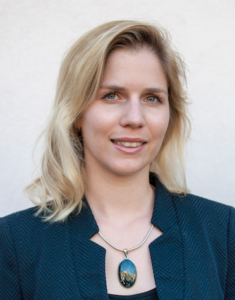
Markéta Pankhurst
Dr. Markéta Pankhurst was the Project Manager for the RoboFood project until 28.02.2025, at the Laboratory of Intelligent Systems (LIS) at EPFL. Markéta obtained her PhD degree in Chemistry in 2017, from the University of Edinburgh, UK. Since completing her PhD, she has worked as an Innovation Consultant and Project Manager on a range of Horizon 2020/Europe funded projects. She enjoys employing her scientific, management and communication skills to innovative projects, to ensure that they are executed efficiently, maximising impact and potential to develop beyond the laboratory stage.

